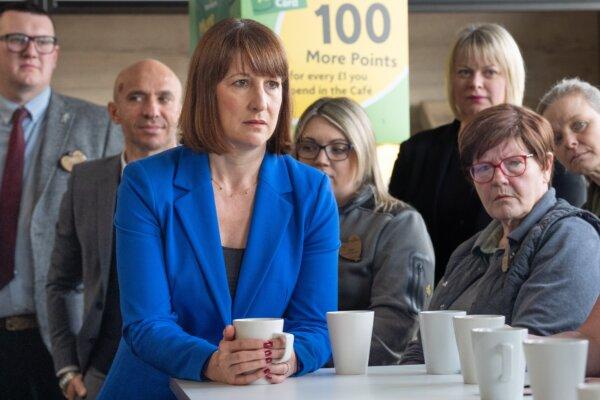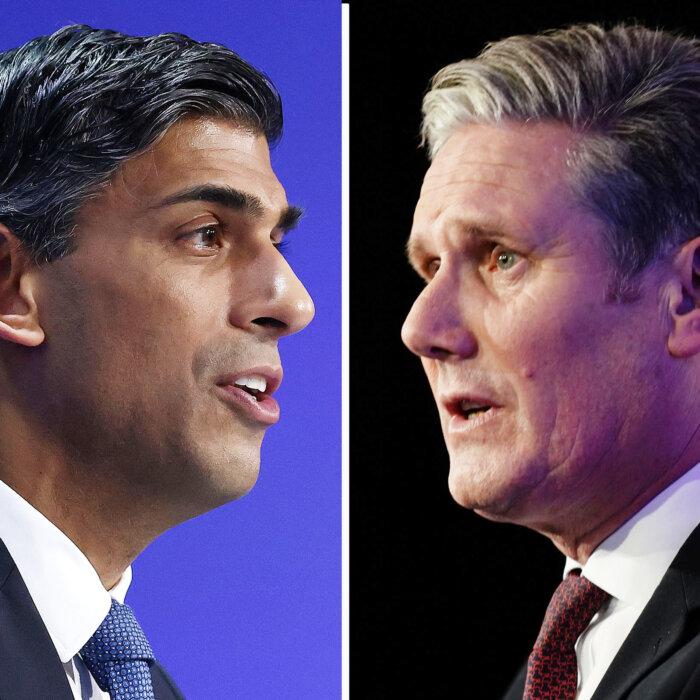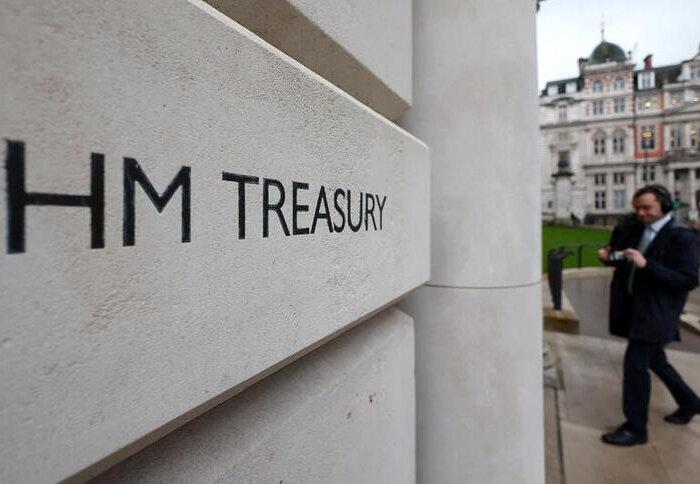Both Labour and the Conservatives have been hiding and ducking the difficult fiscal choices that the country faces, says the Institute for Fiscal Studies (IFS).
Launching the think tank’s analysis of election manifestos, IFS Director Paul Johnson reiterated the think tank’s previous remark that there have been a “conspiracy of silence” on parties’ spending plans.
Mr. Johnson said unless the next government gets lucky, it will soon face “a stark choice” among the trilemma of raising more taxes, spending cuts, or breaking its fiscal rule by raising more debt.
Regardless of which party will win on July 4, the next UK government will inherit the highest debt level in over 60 years and the highest tax burden in over 70 years.
Both the Conservative Party and Labour made it a rule of having debt falling as a share of GDP in five years, but Mr. Johnson said the next government will have to face the trilemma because of growing costs of debt interest, low growth, energy prices, and growing demand for welfare, health, defence, and green investment.
“These raw facts are largely ignored by the two main parties in their manifestos. That huge decisions over the size and shape of the state will need to be taken, that those decisions will, in all likelihood, mean either higher taxes or worse public services, you would not guess from reading their prospectuses or listening to their promises,” he said.
“They have singularly failed even to acknowledge some of the most important issues and choices to have faced us for a very long time. As the population ages these choices will become harder, not easier. We cannot wish them away.”
Reeves: ‘Difficult Decisions’ Ahead
Speaking in Scotland on Monday, Labour shadow chancellor Rachel Reeves said that “difficult decisions” will need to be made if her party forms the next government.She laid the blames on the Tories, which she said have left the UK’s finances in an “absolute mess,” and added that it would “take time to turn around that damage” after 14 years of Conservative rule.

The shadow chancellor said that she doesn’t want to let people down and won’t make promises that she can’t keep, but she also stressed the need to to grow the UK economy, arguing that this would allow Labour to raise additional funding needed for public services.
The shadow chancellor again insisted that “there will be no return to austerity under a Labour government,” as she stressed: “Our plans are premised on growing the economy, because it has been growth that has been missing these last 14 years.
“If we had just grown at the average rate of similar OECD economies in the last 14 years, our economy would have been £150 billion bigger.”
She said growth at this rate could provide £55 billion a year to spend on public services, adding, “That is how important growth is.”
In its manifesto, Labour has styled itself “the party of wealth creation.”
Ms. Reeves, speaking on a visit to the Whitelee wind farm outside Glasgow, which is the UK’s largest onshore windfarm, insisted Labour’s proposals were “all about growing the economy,” with plans to reform planning and skills included in its election manifesto.
Asked about Sir Keir Starmer’s previous remark that it’s “defeatist” to think the UK economy won’t grow soon enough, Mr. Johnson said during the IFS event, it’s “prudent” to plan for a worse scenario and “inappropriate” not to do so when forecasts are not very positive.
Mr. Johnson also criticised manifestos of Reform UK and Green, in which Reform pledged a much smaller state and Green promised a much larger one, saying what they had proposed are “wholly unattainable, helps to poison the entire political debate.”







